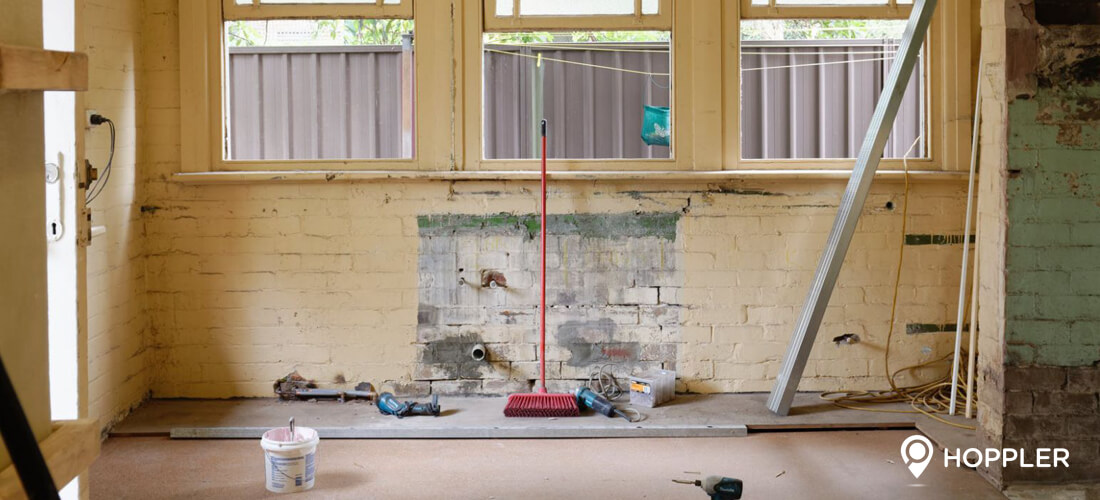Viewing Checklist: 10 Questions to Ask Yourself When Considering a Home
The first viewing of a home is when potential owners come hopeful to cross off most – if not all – the criteria on their wish-list. Many considerations hinge on the minute they initially step inside the property and pay heed to the feeling in their gut if the property they are viewing exudes the feeling of home they want.
Finding the right home is a daunting task, and it requires the investment of time. However, it could get discouraging to constantly view homes that only disappoint. At the same time, viewing in the presence of others can be pressuring, causing buyers only to have a quick look around.
Buying a new property is a decision that should never be rushed, which is why many real estate professionals not only encourage their clients to view homes but to do so thoroughly. This is the perfect chance to find out whether or not the property is fit for the client. It is also right time to spot any problems (or potential problems) down the road.
It’s easy to be overcome with awe especially if a home looks majestic, but a wise home buyer comes equipped with the right questions to ask the seller to ensure that they get the most out of their viewing.
- What’s the neighborhood like?
When purchasing a home, the neighborhood it’s located in is a major consideration that cannot be overlooked. Try to get an in-depth, insider look on the community, because this should fill in the gaps for the decision to purchase. Knowing the neighborhood lets home buyers see if their lifestyle fits in with the rest of the community that lives there. For those who lead an active lifestyle, some valuable things to look for within the neighborhood are recreational options such as a park or a sports court. Those who prefer to be away from the noise of traffic should look for a neighborhood surrounded by lush greens and streets lined with trees.
- What’s the condition of the home’s foundation?
At first glance, it’s easy to gauge the condition of the home’s foundation. Some of the more common signs include cracks on the floor or the wall, doors that don’t open or close properly, gaps around window frames, or watermarked areas in the ceiling. Any damp areas is a sign of a faulty foundation. This would then entail that a thorough investigation be done – preferably with the assistance of a professional contractor or engineer – to identify the gravity of the problem.
- How’s the roof?
Home buyers tend to focus all their attention on identifying any problems with the foundation of the home, they often forget another important consideration: the condition of the roof. Replacing a roof is an expensive overhaul. It would prove wise to ask the seller when the roof was installed and the material that was used. Any leakages from the ceiling could indicate an issue on the roof.
- Are the systems complete and fully functional?
Electrical and plumbing issues are some of the hardest to decipher at first glance, but they are an important consideration in buying a home. Dodgy wiring is yet another dangerous and expensive issue to repair.
Power outlets are another thing that must be identified during viewings to avoid any headaches in the future. Make sure that the home has an adequate number of power points for its size, and that they are in suitable locations.
With plumbing issues, it’s a good idea to bring an expert along on a second viewing to check out and test the piping. At the initial viewing, one simple thing to do is to run the water quickly to check the quality of the flow of water.
- Does the house have good natural light?
When looking for a home, consider all the possible pathways for natural light. Purchasing a home that doesn’t permit much sunlight to enter could leave its residents with a gloomy and restless disposition. Research has actually proven that a person’s mood inside a home is heavily influenced by natural lighting. It could also result in a decrease in productivity. Practicality also dictates that choosing a home with natural light permeating through the windows would be more cost-efficient in the long run, with energy being conserved during the day.
- Is the home in the flood zone?
It’s advised to ask an expert to determine whether or not a property falls within a high-risk flood zone. It’s important to consider the risk of living in a flood zone because it could dramatically increase insurance costs. Flood risks can change over time due to a number of factors, but even low-risk areas are dangerous and a major deal breaker for many potential home buyers.
- Are there pests in the house?
The worst thing one can find in a viewing is a home infested with termites – or any pests, for that matter. There’s a solution to termite damage, but it’s something that must heavily be considered as the burden of additional expenses to solve this issue could be a headache. Pests are a nuisance and an unnecessary stressor. Some subtle, at-first-glance indications of the presence of pests in a home include grease or small holes in the cupboards as well as dead bugs on the floor.
- Is there enough storage space?
An empty house will always look bigger than a fully furnished property, so a double take needs to be done to gauge that there really is enough room. Check the storage space in the bedrooms. Kitchen appliances require a vast space to keep things tidy and spacious. Consider also the placement of the dining table, sofas, and the refrigerator.
- Have I been fooled by staging?
Cleverly placed mirrors, strategic lighting, fresh paint, and even scented candles are all tricks sellers use to make their home more appealing during viewings in an attempt to cover up any issues. It’s important to be objective during viewings. Look at each area closely to avoid falling prey to a staging.
- Can I envision a future in this home?
Perhaps a home has passed all the criteria. One final consideration that must be made is the future. It may be difficult to foresee every aspect of an individual’s future life, but it’s important to have an idea or a vision of the life he or she wants to live come the next 5-10 years.
Approaching home buying as an investment in terms of the person one aspires to grow into in the future dramatically changes one’s lenses during a viewing. The right mindset should be entering into this milestone of a life decision expecting only to find the best home.



